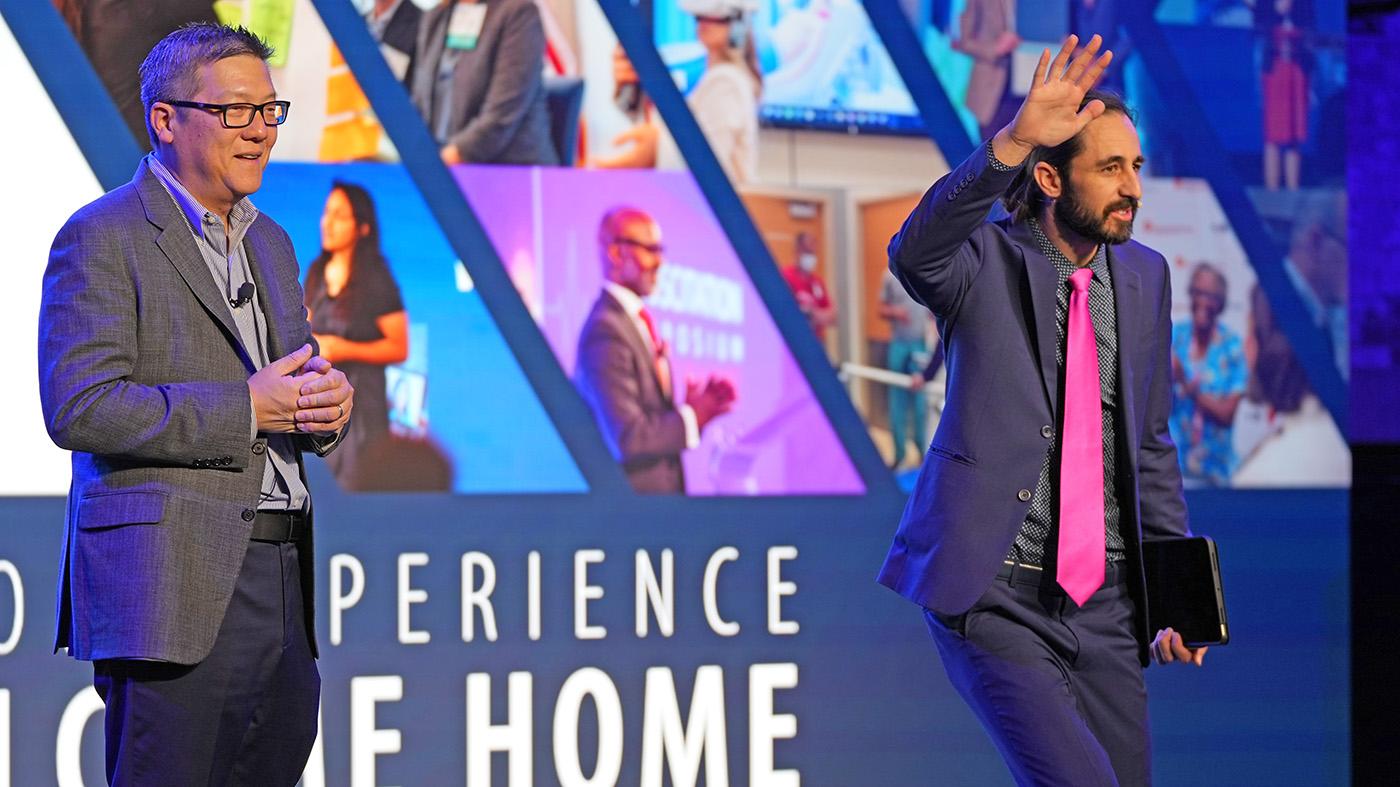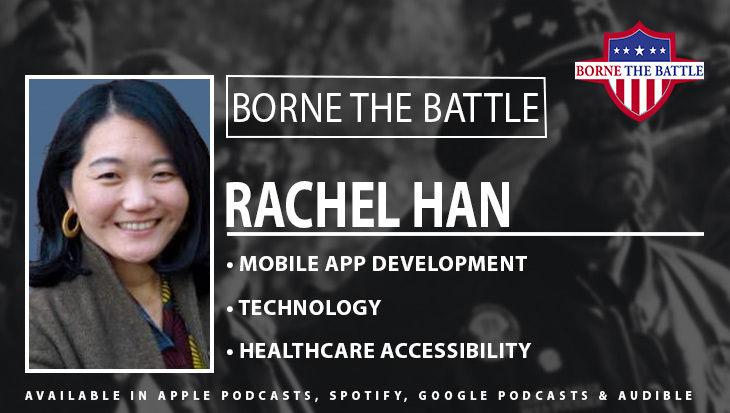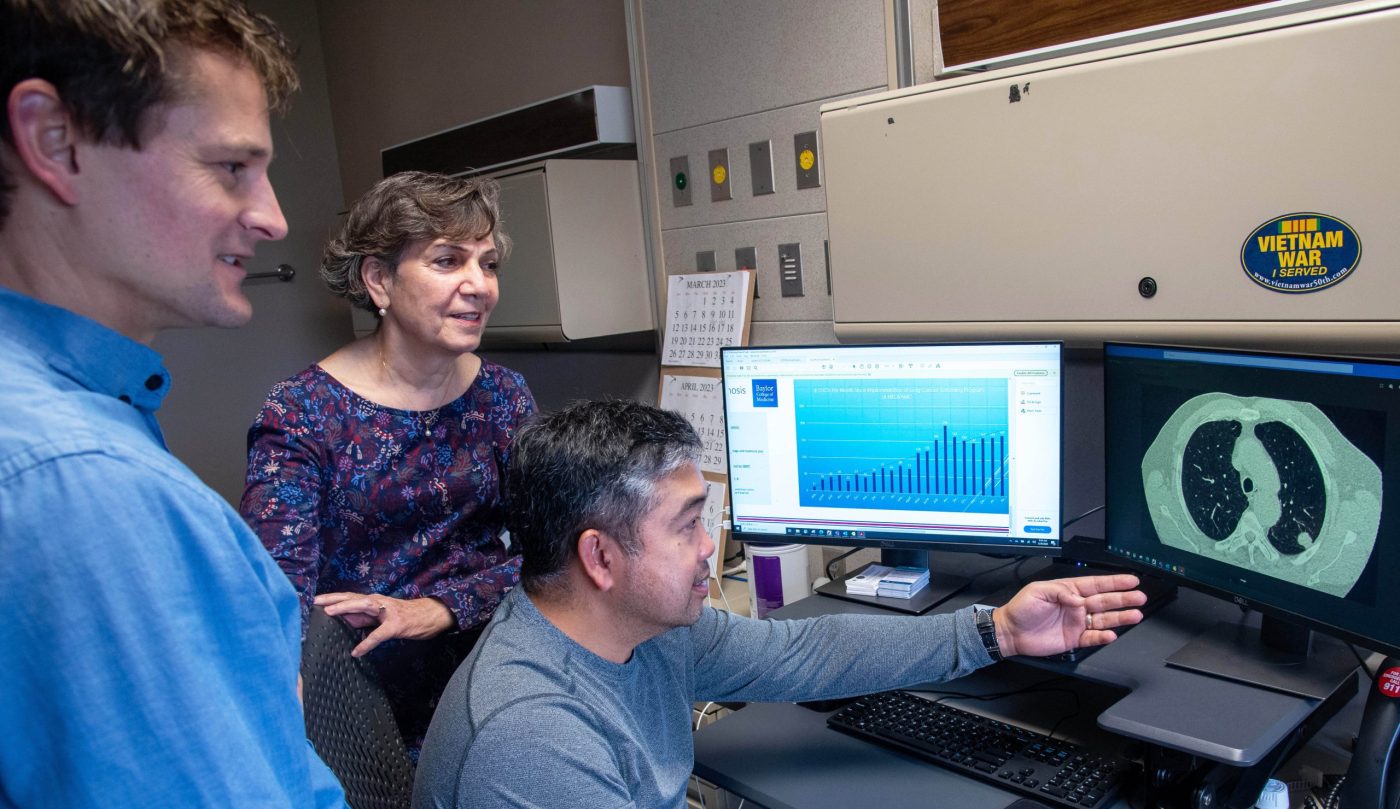A new VA program is helping to fulfill one doctor’s purpose of delivering compassionate and effective care to Veterans at Central Virginia VA Health Care System. Dr. Jarrod Reisweber and colleagues created Transcending Self Therapy to improve substance abuse treatment for Veterans.
Reisweber is a clinical psychologist and author of Transcending Self Therapy (TST). TST is an addition to Cognitive Behavioral Therapy (CBT). While CBT is a psychotherapy focused on improving a person’s thought and behavior patterns to boost emotions, TST identifies what a person’s higher moral standard is and helps them reach that standard.
The inspiration for TST grew from Reisweber’s memory of his grandfather, who served as a bomber pilot in World War II. His grandfather survived the war, but lived with an internal battle that affected his relationship with his family. Despite suffering from Alcohol Use Disorder, his grandfather was a proud patriot who doted on his wife and provided for his family.
“I believe my grandfather’s drinking was influenced by his time in combat and may have gotten worse when his son, my uncle, died by suicide,” Reisweber said.
Reisweber remembers his uncle as a great athlete, a popular and very likable man. Yet he also struggled with substance abuse. His suicide came as a shock to the family. For Reisweber, though, it influenced his career choice. He was drawn to psychology after years of noticing how he showed compassion for others–those who struggled with suicide, mental health issues and substance abuse. He proudly serves Veterans now.
Though he never donned the uniform himself, Reisweber was encouraged to take a different path. Now, at VA, he dedicated his mission to improving Veterans’ quality of life by helping them reach their highest potential. He understands the toll and struggles Veterans face no matter how many programs and services are offered.
“I truly believe the VA system is better than any hospital system in the world,” Reisweber said.
More than just CBT
TST helps patients get in touch with their morals and change unhealthy thinking and behavior patterns. Clinicians identify what qualities Veterans feel they are lacking by evidence of their thoughts and behaviors. After a quality is identified, it is used as a moral compass for treatment. Veterans improve on problem-solving, coping, goal setting and psychosocial skills through individual and group therapy. This helps them achieve the best version of themselves.
“Substance Use Disorder (SUD) rates among Veterans are higher than in the general population. If clinicians across the VA and the country were to start using this treatment now, we’d have a good chance to influence the SUD crisis immediately.” – Dr. Reisweber
Innovation Experience
The program that helped spread Reisweber’s idea is the Veteran Health Administration’s Innovation Network. This network offers connections by which innovations can be funneled and vetted to bring improvements to patient care. The VHA Innovation network helps test ideas to improve access, increase quality, drive down costs and drive up Veteran satisfaction. On-site personnel called innovation specialists guide clinicians and others to design, develop and implement their products.
“In Research and Development, traditional research takes an average of 17 years to go from a concept to a patient’s bedside,” said Suzanne Shirley, innovation specialist at the Central Virginia VA HCS. “When innovative solutions like TST are developed using human centered design and VA funding, the impacts are felt in real time.”
The data collected during the implementation phase far surpasses the results of typical treatment. Sixty-eight patients participated in the 20-day residential treatment program. Results show one month after treatment, those who used TST were less likely to relapse than those who did not receive TST. Reisweber will present his TST program findings at VHA’s Innovation Experience (iEx) in Washington D.C.
Through the Innovation Network, projects go through three phases: spark, seed and spread. Spark refines the idea. The seed phase seeks to improve the designs based on feedback and marketing strategies. The spread phase scales the innovation to multiple sites across the country. Selectees receive $10,000, $50,000 and up to $200,000 respectively.
In real time
“It’s a great example of how something sparks as a small concept by a front-line provider and builds into a refined product spreading to 50 different medical centers across the country,” Shirley said, adding that VA serves approximately nine million Veterans.
Shawn Davenport, an Army Veteran participated in TST.
“I had situations where I would usually handle it incorrectly. But being that I’m thinking on my thought patterns and I’m seeing what’s motivating my actions, I can stop them before they become negative.”
Reisweber says patients in the intensive outpatient and residential substance abuse programs at the Richmond VA are seeing significantly greater reductions in substance abuse and depression compared to what was done before and the treatment is garnering national attention.
“I am so grateful for the opportunity to develop this approach with colleagues and provide this care; care that I wish had been given to people like my uncle and grandfather,” Reisweber said.
Megan Kon is a public affairs specialist at the Richmond VA Medical Center.
Topics in this story
More Stories
The 2023 Innovation Experience showcases the best of VA innovation and the impact of VA employees advancing Veteran care.
On this week's episode of Borne the Battle, host Pablo Meza spoke with Rachel Han from VA's mobile app team, who shared how VA is using apps as a digital bridge connecting Veterans to VA's benefits and services.
Less than two years in, an innovative lung cancer screening [...]







Are the veterans still bombarded with those extremely offensive, discriminating, and 100% proven failed 12-Step religious AA/NA cult mandates, with its ridiculous “Higher Power” witchcraft and sorcery nonsense, in this new treatment protocol?
Via Dr. Reisweber: Transcending Self Therapy makes no ontological claims about the legitimacy of a god or higher power. Instead, the therapy encourages Veterans to identify and change maladaptive thinking and behavior patterns. Along with this, Transcending Self Therapy is to be practiced in an culturally sensitive manner that helps patients identify where their moral compass pointing them and then how they can live a life in accordance with their morals. The end goal is for patients to be working towards living their best version of themselves.
Good question! Me too!
Really the VA wants to help, I have been trying to get medical care , in 2013 I needed dental care I’m in need of dental care in 2019 I’ve been getting the runaround since 2013, I have a liver decrease the VA discovered in 2014 in sure you know nothing has been done, I haved told nine VA doctor my rt,, knee is hurting especially when I go up stairs or down out of the nine doctors not one has examined my knee that’s the truth, myh primary care doctor put me on pain meds in 2014 , the pain meds were terminated with no explanation, now I must purchase meds from others. I wentg to the VA hospital for help , but I was turned away, now I received a letter from thed vs stating I was disrespectful in a va facility I haved no idea what there talking about, I’m not allowed on VA property without notifying the va police , that the VA way a blaming the veteran, I understand when you fail just blame someone or something, the va has not responded to my needs , there are many no time to list them all ,all of this is documented, where do I go from here or what do I do ? HELP!!
how can one get the treatment?
Ola A, Know that I am simply another veteran who read this article. That said, I wanted to bring the following paragraph to your attention:
Through the Innovation Network, projects go through three phases: spark, seed and spread. Spark refines the idea. The seed phase seeks to improve the designs based on feedback and marketing strategies. The spread phase scales the innovation to multiple sites across the country. Selectees receive $10,000, $50,000 and up to $200,000 respectively.
Yes everything will take its time to be implemented, but I encourage you to make an appointment to discuss this TST treatment article with your VA substance abuse counselor. I too am a recovering addict having been provided pain meds by the VA for nearly 6 years. I recently had my second back to back hip surgery and ended up paying out of pocket for appointments and pain meds from a local pain management clinic…Do Not Do This…you will leave a paper trail that will be detected by the VA upon regular medication reviews. This can have direct effects on meds you are currently receiving and at worst could cost you your benefits! Choose recovery. Always choose recovery and good luck my friend I am pulling for you.